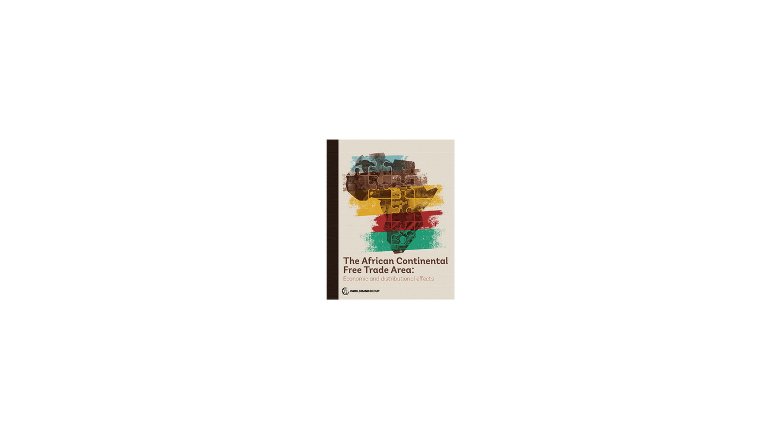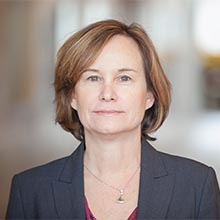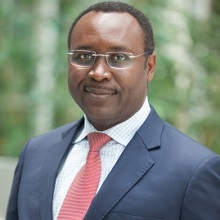
The African Continental Free Trade Area (AfCFTA) agreement will create the largest free trade area in the world measured by the number of countries participating. The pact connects 1.3 billion people across 55 countries with a combined gross domestic product (GDP) valued at US$3.4 trillion. It has the potential to lift 30 million people out of extreme poverty, but achieving its full potential will depend on putting in place significant policy reforms and trade facilitation measures.
The scope of AfCFTA is large. The agreement will reduce tariffs among member countries and cover policy areas such as trade facilitation and services, as well as regulatory measures such as sanitary standards and technical barriers to trade. Full implementation of AfCFTA would reshape markets and economies across the region and boost output in the services, manufacturing and natural resources sectors.
As the global economy is in turmoil due to the COVID-19 pandemic, creation of the vast AfCFTA regional market is a major opportunity to help African countries diversify their exports, accelerate growth, and attract foreign direct investment.
The World Bank report, The African Continental Free Trade Area: Economic and Distributional Effects, is designed to guide policymakers in implementing policies that can maximize the agreement’s potential gains while minimizing risks. Creating a continent-wide market will require a determined effort to reduce all trade costs. Governments will also need to design policies to increase the readiness of their workforces to take advantage of new opportunities.
Creating a single, continent-wide market for goods and services, business and investment would reshape African economies. The implementation of AfCFTA would be a huge step forward for Africa, demonstrating to the world that it is emerging as a leader on the global trade agenda.

The African Continental Free Trade Area has the potential to increase employment opportunities and incomes, helping to expand opportunities for all Africans. The AfCFTA is expected to lift around 68 million people out of moderate poverty and make African countries more competitive. But successful implementation will be key, including careful monitoring of impacts on all workers—women and men, skilled and unskilled—across all countries and sectors, ensuring the agreement’s full benefit.

Maryla Maliszewska – Lead Author, is a Senior Economist in Trade and Regional Integration Unit (ETIRI) at the World Bank. Her area of expertise covers various aspects of trade policy and regional integration with a special focus on the impacts of trade on poverty and income distribution.
Michele Ruta – Lead Author, is a Lead Economist in the Trade and Regional Integration Unit (ETIRI) at the World Bank. His research interests are in international economics, and particularly on issues concerning international/regional integration.
Guillermo Arenas is an Economist in the Trade and Regional Integration Unit (ETIRI) at the World Bank. His area of expertise covers various aspects of international economics and public policy including trade policy, export competitiveness, and impact evaluation.
Paul Brenton is a Lead Economist in the Trade and Regional Integration Unit (ETIRI) at the World Bank. He focuses on analytical and operation work on trade and regional integration.
Cesar Calderon is a Lead Economist in the Chief Economist Office of the Africa Region at the World Bank. He was worked on issues of growth and development —especially, the growth effects of infrastructure development and outward-oriented strategies.
Roberto Echandi is a Lead Private Sector Specialist in ETIRI. He focuses on research and policy advice on issues related to cross border trade in services, negotiation, implementation and maximization of potential benefits of Deep Integration Trade Agreements and the AfCFTA negotiation and implementation process.
Israel Osorio Rodarte is an Economist in the Trade and Regional Integration Unit at the World Bank. He more than 10 years of experience in international development, particularly on areas of economic diversification, structural change, and in the distributional analysis of trade and macroeconomic policy.
Dominique van der Mensbrugghe is Research Professor and Director of the Center for Global Trade Analysis (GTAP) at Purdue University. The focus of his work during his career has been on long-term structural change of the global economy and the analysis of global economic policy issues.
Maria Filipa Seara e Pereira consults in the Trade Regional Integration Unit (ETIRI) at the World Bank. She works mainly on topics of international trade, and international development, particularly in modeling, trade policy, distributional effects of trade and global value chains.
Yulia Vnukova consults in the Trade and Regional Integration Unit (ETIRI) at the World Bank. Based on over ten years of experience, Yulia’s current work focuses on trade policy and regional integration, with the focus on macroeconomic and microeconomic analysis of trade, trade and sector competitiveness, global value chains, and private sector development in emerging economies across Europe, Asia, and Africa.